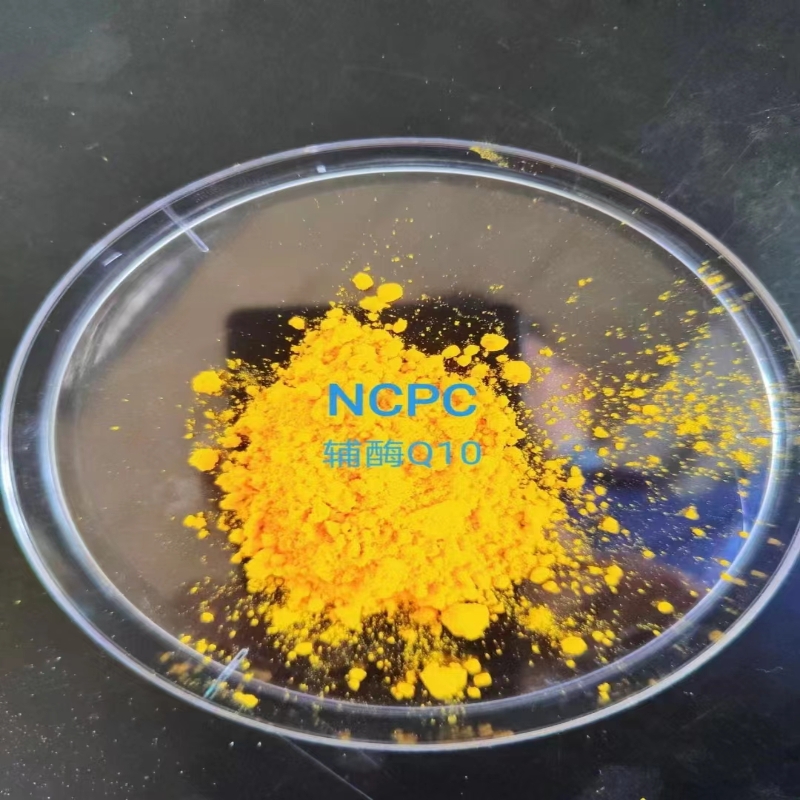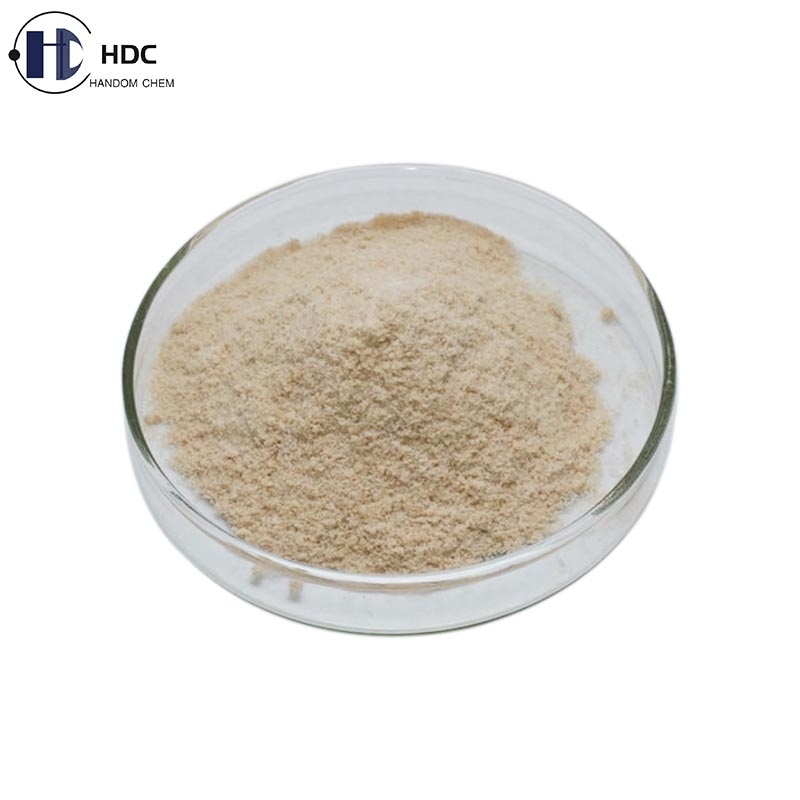Amgen submits the listing application of repatha in Japan
-
Last Update: 2015-03-23
-
Source: Internet
-
Author: User
Search more information of high quality chemicals, good prices and reliable suppliers, visit
www.echemi.com
March 23, 2015 / BIOON / -- Amgen today announced that it has submitted an application to Japanese regulators for the listing of repatha, a high cholesterol drug Repatha was jointly developed by a Japanese based joint venture between Amgen and astella pharmaceutical in Japan Repatha is an all human monoclonal antibody in research It can inhibit the activity of procollagen converting enzyme, subtilisin / Kexin type 9 (PCSK9) The protein can bind to low-density lipoprotein receptor (LDL-R) and guide its internalization to lysosomal degradation, inhibit its recycling to the surface of hepatocytes, thereby weakening the metabolism of LDL-C in liver plasma Ability In Japan, LDL-C levels in many patients taking statins are not adequately controlled "The submission of repatha's marketing license in Japan is a milestone in our strategic partnership with Astaire Pharmaceutical Co., Ltd., and we look forward to working with Astaire to bring more breakthrough treatment programs for patients with high cholesterol under the guidance of Japanese regulatory authorities." Sean E Harper, executive vice president, research and development, Amgen The listing application of repatha in Japan is based on the results of 11 clinical phase 3 trials in 7200 patients with high cholesterol In general, the phase 3 trial evaluated the safety and efficacy of repatha in patients with high cholesterol, and the results were satisfactory About 10 years ago, scientists at the University of Texas found that patients with lower PCSK9 protein had a much lower risk of LDL and heart attack than those with normal PCSK9 protein due to gene mutation Sean Harper, Amgen's executive vice president and director of research and development, said many companies are interested in developing the PCSK9 inhibitor Harper pointed out that PCSK9 protein circulating in the blood can basically absorb LDL receptor on the cell surface, thus preventing LDL from leaving the blood Amg145, a cholesterol drug developed by Amgen, is designed to bind to PCSK9 protein to remove LDL from the body According to a recent report from the Centers for Disease Control and Prevention (CDC), the average LDL cholesterol in American adults is about 116mg / dl The current guidelines require LDL cholesterol levels to be lower than 130, medium risk to be lower than 100mg / dl, and high-risk to be lower than 70mg / dl, especially those who have already suffered from heart disease CDC points out that about 710000 American adults have high levels of LDL, and only one third of them are under control Most people may benefit from statins, but researchers and large pharmaceutical companies have developed PCSK9 inhibitors because they believe that there are still a large number of patients who cannot take statins and other available therapies, and PCSK9 inhibitors have a considerable market In the development of PCSK9 inhibitors, PCSK9 monoclonal antibodies have attracted much attention in the early stage of clinical trials for two reasons: (1) new mechanism: acting on PCSK9 target, interfering with its binding with LDL-R, different from the way statins inhibit HMG CoA reductase; (2) new dosage form: the dosage form is an injection, which can be used every two or four weeks Time, reduce the burden of taking medicine Amgen and Sanofi / regeneron are ahead of Pfizer, Lilly, Novartis and other giants in the PCSK9 inhibitor R & D boom Amgen announced on March 17, 2014 that the Tesla phase III study of evolocumab (amg145) in the treatment of homozygous familial hypercholesterolemia reached the main end point, and the reduction of LDL-C level in the 12th week in 49 patients with hofh treated by evolocumab compared with the baseline value was clinically significant Alirocumab, a PCSK9 inhibitor monoclonal antibody jointly developed by Sanofi and regeneron, is considered to be one of the most interesting new drugs in the third quarter of 2014 Alirocumab's first-line results at the primary end point of week 24 LDL cholesterol reduction are expected to be published in the third quarter of 2014 Alirocumab, code named Odyssey phase III project, recruited about 23 million patients in total and carried out 14 studies to investigate the efficacy of alirocumab as a single drug or combined with other lipid-lowering drugs One of the first-line results of phase III research, codenamed odysseymono, was disclosed at the end of 2013 Alirocumab reached the main end point compared with zetia (yizhemeb, 2013 sales volume of US $2.658 billion) For the results to be published, we need to pay attention to whether the effect of alirocumabb can be comparable with that of other PCSK9 inhibitors (such as evolocumab of Amgen) after the dose of alirocumabb is increased from 75mg to 150mg in some patients with insufficient response Amgen seeks marketing approval of Repatha (evolocumab) in Japan for treatment of high cholesterol Amgen (NASDAQ: AMGN) today announced that an application seeking marketing approval of RepathaTM (evolocumab) for the treatment of high cholesterol has been submitted for review to the Ministry of Health, Labour and Welfare in Japan Repatha is being developed in Japan by Amgen Astellas BioPharma K.K., a joint venture between Amgen and Astellas Pharma Inc., a pharmaceutical company headquartered in Tokyo.d Repatha is an investigational fully human monoclonal antibody that inhibits proprotein convertase subtilisin/kexin type 9 (PCSK9), a protein that reduces the liver's ability to remove low-density lipoprotein cholesterol (LDL-C), or "bad" cholesterol, from the blood In Japan, LDL-C levels are not adequately controlled for many patients taking statins, nearly half of whom have not reached their LDL-C goal "Submitting Repatha for marketing approval in Japan is an important milestone in our strategic partnership alliance with Astellas Pharma as we look forward to accomplishing our common goal of addressing the critical needs of patients with high cholesterol," said Sean E Harper, M.D., executive vice president of Research and Development at Amgen "We look forward to working with regulatory authorities in Japan to provide a new treatment option for patients whose cholesterol is uncontrolled with currently available therapies." The Japanese New Drug Application for marketing approval for Repatha contains data from approximately 7,200 patients with high cholesterol in 11 Phase 3 trials, including Japanese patients from studies conducted in Japan Overall, the Phase 3 studies evaluated the safety and efficacy of Repatha in patients with elevated cholesterol on statins with or without other lipid-lowering therapies; patients who cannot tolerate statins; patients with heterozygous familial hypercholesterolemia (HeFH); and patients with homozygous familial hypercholesterolemia (HoFH), a rare and serious genetic disorder
This article is an English version of an article which is originally in the Chinese language on echemi.com and is provided for information purposes only.
This website makes no representation or warranty of any kind, either expressed or implied, as to the accuracy, completeness ownership or reliability of
the article or any translations thereof. If you have any concerns or complaints relating to the article, please send an email, providing a detailed
description of the concern or complaint, to
service@echemi.com. A staff member will contact you within 5 working days. Once verified, infringing content
will be removed immediately.







